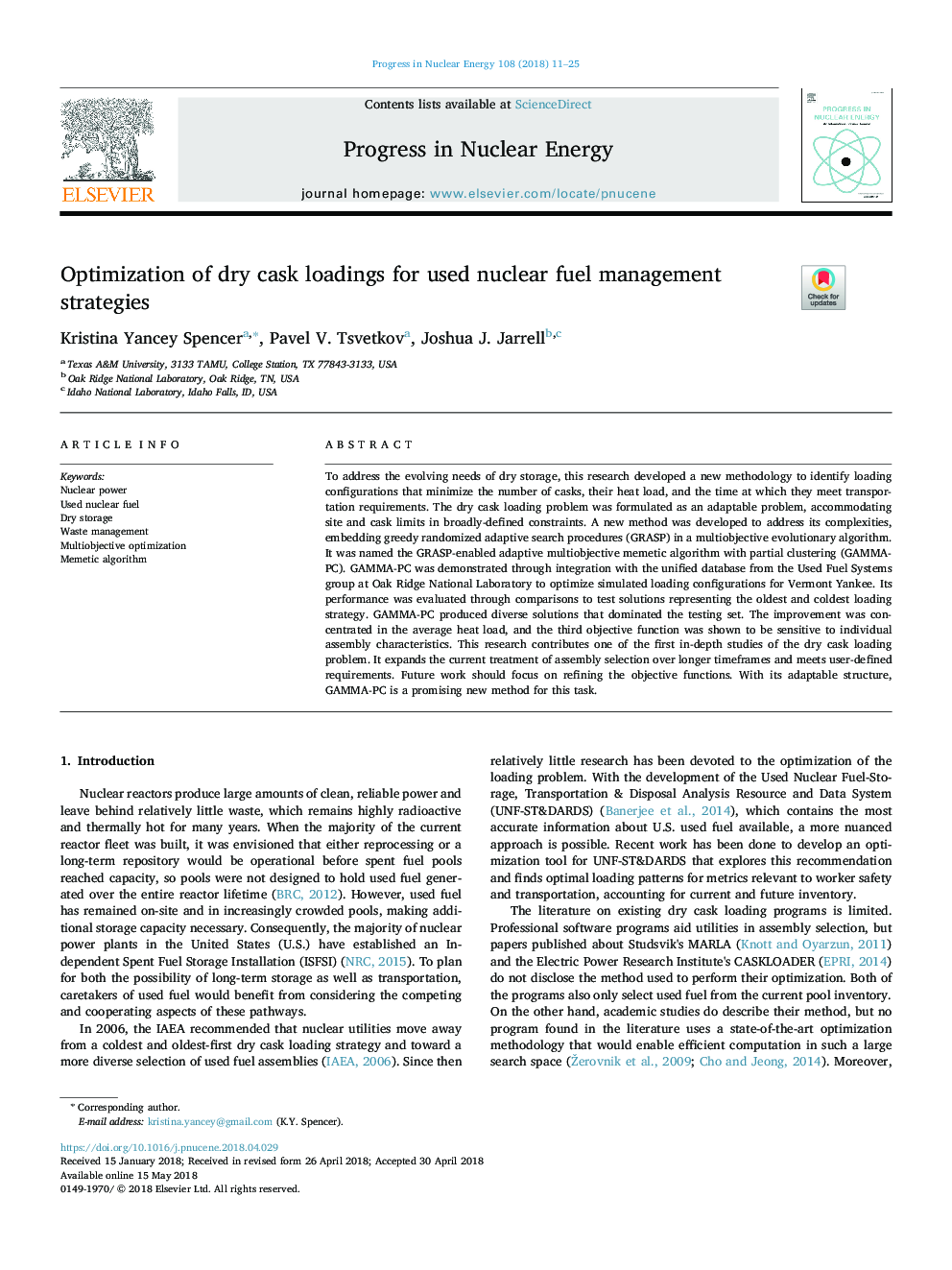| Article ID | Journal | Published Year | Pages | File Type |
|---|---|---|---|---|
| 8084056 | Progress in Nuclear Energy | 2018 | 15 Pages |
Abstract
To address the evolving needs of dry storage, this research developed a new methodology to identify loading configurations that minimize the number of casks, their heat load, and the time at which they meet transportation requirements. The dry cask loading problem was formulated as an adaptable problem, accommodating site and cask limits in broadly-defined constraints. A new method was developed to address its complexities, embedding greedy randomized adaptive search procedures (GRASP) in a multiobjective evolutionary algorithm. It was named the GRASP-enabled adaptive multiobjective memetic algorithm with partial clustering (GAMMA-PC). GAMMA-PC was demonstrated through integration with the unified database from the Used Fuel Systems group at Oak Ridge National Laboratory to optimize simulated loading configurations for Vermont Yankee. Its performance was evaluated through comparisons to test solutions representing the oldest and coldest loading strategy. GAMMA-PC produced diverse solutions that dominated the testing set. The improvement was concentrated in the average heat load, and the third objective function was shown to be sensitive to individual assembly characteristics. This research contributes one of the first in-depth studies of the dry cask loading problem. It expands the current treatment of assembly selection over longer timeframes and meets user-defined requirements. Future work should focus on refining the objective functions. With its adaptable structure, GAMMA-PC is a promising new method for this task.
Keywords
Related Topics
Physical Sciences and Engineering
Energy
Energy Engineering and Power Technology
Authors
Kristina Yancey Spencer, Pavel V. Tsvetkov, Joshua J. Jarrell,
